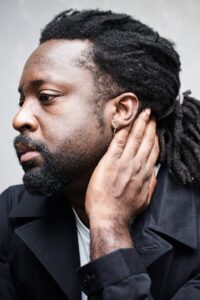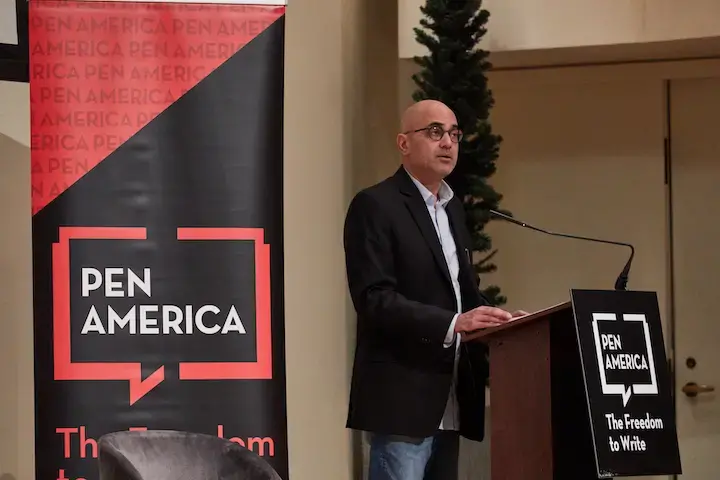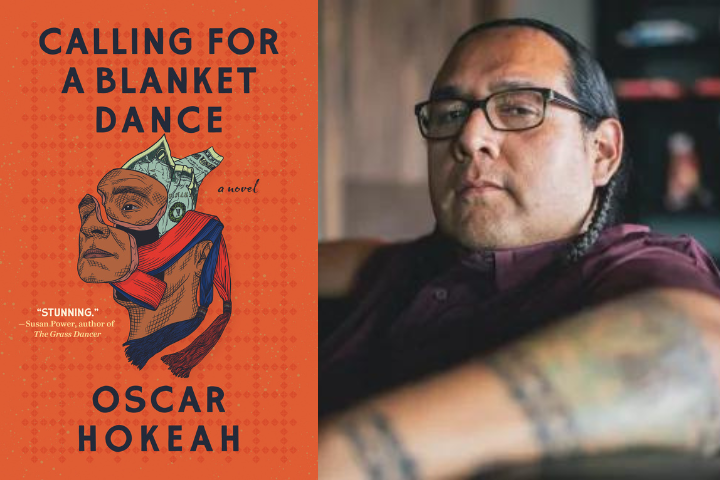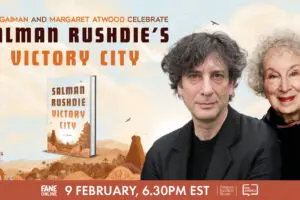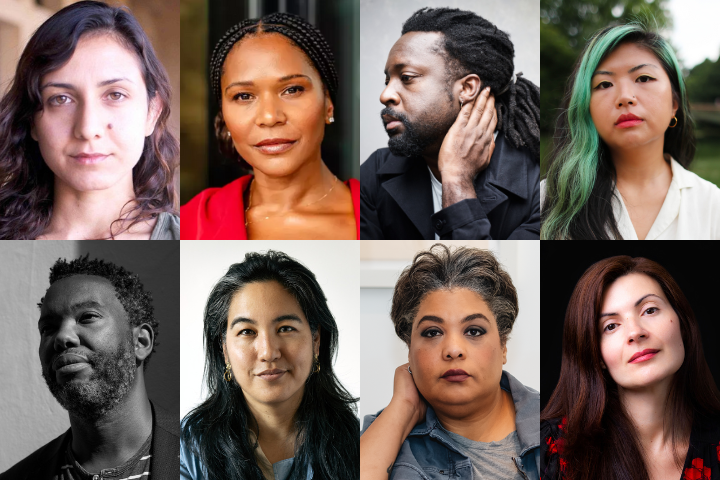
This year, PEN America was in conversation with authors, poets, and other artists for a series of wide-ranging interviews. For a holiday edition of The PEN Ten, we are sharing 10 pieces of wisdom writers shared this year.
New PEN America President Jennifer Finney Boylan on defending free expression.
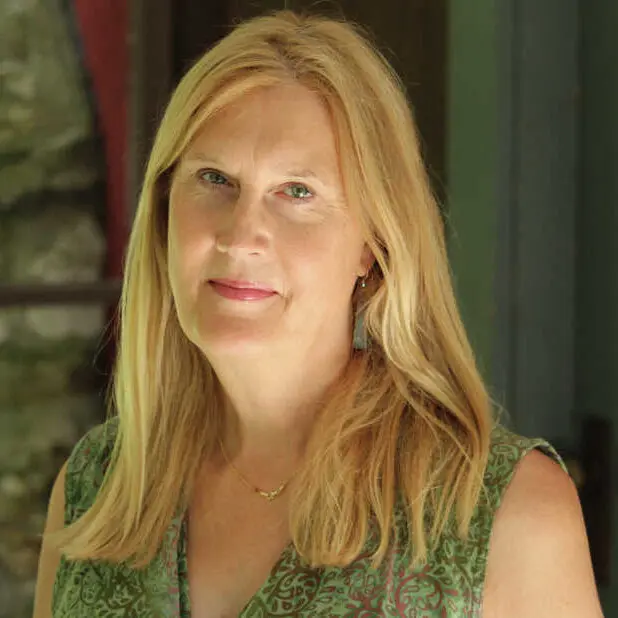
Stories open a door. I think that in some ways the most important thing to understand about each other’s humanity is imagination. And if you want to open a door to the imagination, nothing does it as efficiently as a poem, as a play, as a book
Roxane Gay, author of Opinions, on using her voice
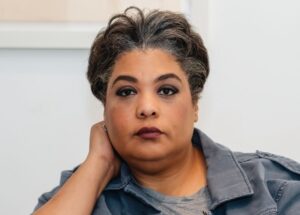 I think I gave myself permission at some point, and I just told myself that no one would read my work, and therefore I could say whatever I want. It would be fine.
I think I gave myself permission at some point, and I just told myself that no one would read my work, and therefore I could say whatever I want. It would be fine.
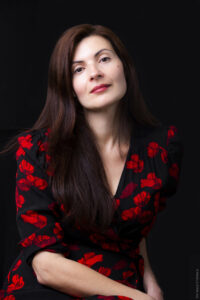 Mona Awad, author of Rouge, on exploring difficult themes in writing
Mona Awad, author of Rouge, on exploring difficult themes in writing
Envy is such a fundamental part of being human, particularly in the age of social media. But few novels explore envy, I think, because it’s a difficult thing to talk about. There’s a lot of shame around envy, it’s ugly, yet we all feel it, we’re all vulnerable to it, and it reveals us in ways we don’t like. And who determines what is enviable, what is beautiful, what is desirable?
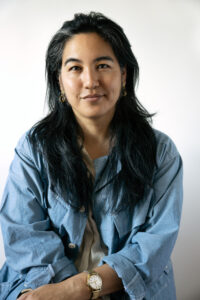 Jillian Tamaki, co-author of Roaming, on bringing forth characters’ relationships to their bodies
Jillian Tamaki, co-author of Roaming, on bringing forth characters’ relationships to their bodies
Body language has always been a big part of my storytelling, within my collaborations with Mariko and my solo work. Characters’ mannerisms and ways they carry themselves add so much information about who they are. Plus I think it’s one of the most fun aspects of comics-making. It really makes the character come to life – no dialogue necessary. Sometimes writing is privileged over art in comics, but both contribute so much to the story together and separately.
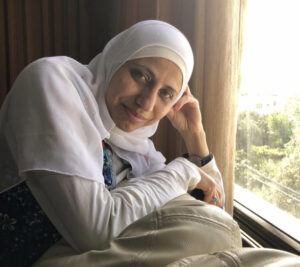 Palestinian poet Dareen Tatour, on how identity shapes her writing
Palestinian poet Dareen Tatour, on how identity shapes her writing
I write political poetry of a revolutionary and resistance character. Even with poems specific to women, for example, the identity of my poems is the identity and character of the resistor and the rebel. Writing political and resistance poetry in Palestine is tantamount to documenting what is happening to us because of the occupation.
Marlon James, author of Moon Witch, Spider King, on what it means to be a writer and a force for change
I think the role of a writer in creating change is to write. Which is not to say activism isn’t important, but a lot of times when writers are being attacked, they’re being attacked simply for being.
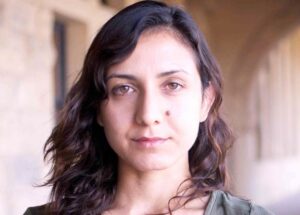 Ottessa Moshfegh, author of Lapvona, on why she writes fiction
Ottessa Moshfegh, author of Lapvona, on why she writes fiction
I’d say 95% of the reason I write fiction is because I want to get better at writing fiction. So for me, it’s very personal. It’s about building an ability. And the only way for me to do that is to practice. So I don’t consider any of my books a masterpiece. I think I write in order to follow a path toward what I want to be able to do. And I think if I thought of it another way, it would be too devastating to say goodbye to projects.
Ta-Nehisi Coates, author of Between the World and Me, on censorship in classrooms and libraries
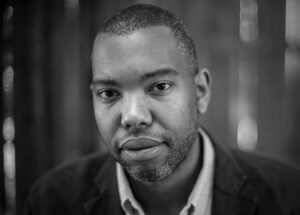 You have to see the book bans in concert with the assault on all of these other things, with the assault on voting rights, for instance, with the assault on protests, and in Florida passing laws that allow folks to drive vehicles into protests and not be prosecuted, you have to see it all in concert all and working together.
You have to see the book bans in concert with the assault on all of these other things, with the assault on voting rights, for instance, with the assault on protests, and in Florida passing laws that allow folks to drive vehicles into protests and not be prosecuted, you have to see it all in concert all and working together.

Gina Chung, author of Sea Change, on why she writes
I was a voracious reader from an early age, and the moment I realized that books were things one could aspire to write, I was determined to become a writer myself.
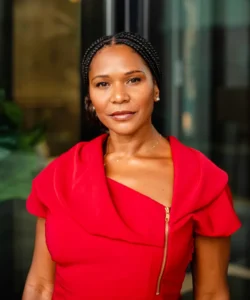 Jamila Minnicks, author of Moonrise Over New Jessup, on finding her character’s voice
Jamila Minnicks, author of Moonrise Over New Jessup, on finding her character’s voice
Our language reflects our history, our culture, our trophies, our scars, and our dopeness. I write to preserve our language because it is one way that we can really connect our past to our present.
Guadalupe Calpeno is a communications intern at PEN America.

